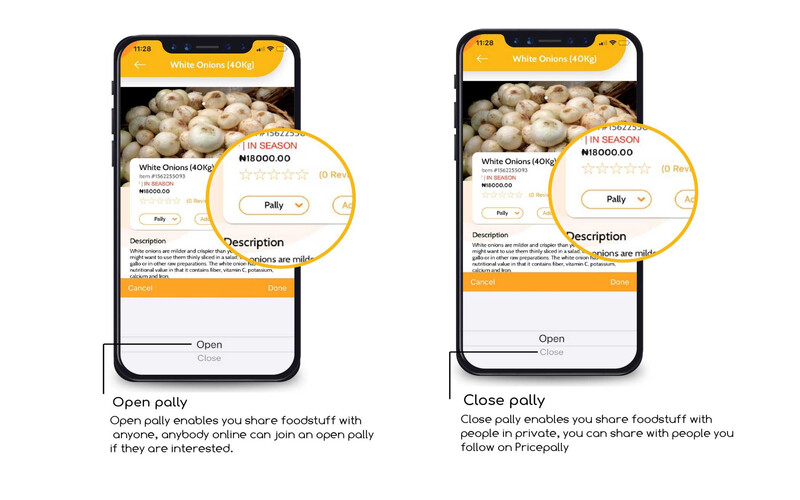Pricepally is an online grocery store in Nigeria that sells fresh produce and packaged food. The company recently raised $1.3 million in seed funding, which Samurai Incubate supported. This Japanese venture capital firm also participated in the startup’s 2021 pre-seed round, along with SOSV, ELEA, Hi2 Global, Chui Ventures, and ex-Unilever executive David Mureithi.
Following the fresh financing, the business joins several African food e-commerce startups, like South Africa’s Yebo Fresh and Morocco’s Terraa, that have obtained funding this year as venture funders continue to scale back their operations.
Pricepally has stated that it plans to utilize the funds to grow beyond the three cities in Nigeria that it now serves and to reintroduce group buying to fulfill its promise of enabling customers to purchase food at more affordable prices. The firm makes it possible for customers to have their food the same day or the day after they are buying it using its many digital channels, such as its app and its chatbot for WhatsApp. It presently operates in three locations, and each of those cities has its own network of fulfillment facilities; however, delivery services are contracted out.
To combat food shortages, rising prices, and rising inflation, Luther Lawoyin (CEO), Deepak Bansal (CTO), Mosun Lawoyin (CXO), and Jummai Abalaka (COO) founded Pricepally in 2019.
The new business claims that it obtains its fresh produce directly from farmers, some of whom it has contracted, and purchases its packaged food from manufacturers. Lawoyin, the company’s executive officer, told TechCrunch that the produce costs are often negotiated, which, when combined with the company’s short food supply chains, guarantees that the company’s supplies come at a low price.
“Because we work with certain farmers to produce specific items, we have greater control over the quality and the supply. We also do pricing analysis throughout the regional marketplaces and found that our rates are far more reasonable than our competitors. This is mostly because we’ve eliminated multiple layers of intermediaries. According to Lawoyin, “his plans for now and moving forward are for us to capitalize on our sourcing strength to solve one of Nigeria’s current problems, food insecurity.”
“There are many instances in which we are more than just a company that sells stuff. We are increasing the visibility and the degree of openness in the market.
According to Lawoyin, transparency is one of the primary factors that has led to the sustained expansion of its client base and high customer retention rate. A testimony to its value proposition’s viability is that more than 80 percent of its sales come from the company’s current customers.
Retail buyers comprise 70% of the clients and are the primary focus of the marketing efforts. Unlike enterprises, retail buyers pay upfront, are less expensive to recruit, and generate better profits, according to Lawoyin.
The company expects that the resumption of online group buying, which will make it possible for even more retail customers to get together to unlock wholesale pricing, will assist in accelerating the company’s development as the cost of food continues to rise. Aside from that, it is also seeking to unlock new clients using April, its recently released WhatsApp chatbot that targets the mass market in Nigeria, one of the nations with the most prominent WhatsApp usage internationally. This target audience is in Nigeria.
In response to the acquisition, Rena Yoneyama of Samurai Incubate said in an interview with TechCrunch that “the great thing about Pricepally is their execution ability.”There are still many challenges associated with conducting business online in Nigeria, and many processes that operate correctly in other large cities in Africa frequently do not work in Nigeria owing to a lack of hard and soft infrastructure and trust concerns.
However, Pricepally has put in a lot of effort to boost the quality of service, increase customer happiness, acquire consumers’ confidence, and build up a very high percentage of customers who purchase from them repeatedly. Their robust unit economics and consistent company growth are evidence of this.

